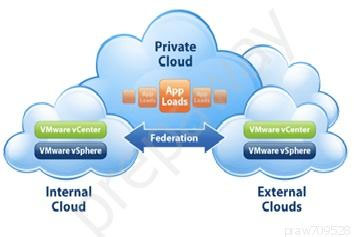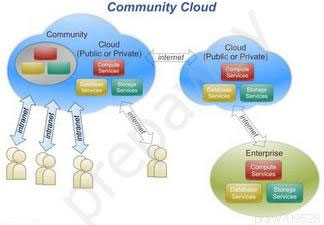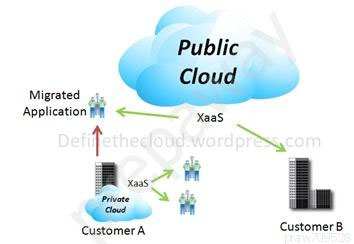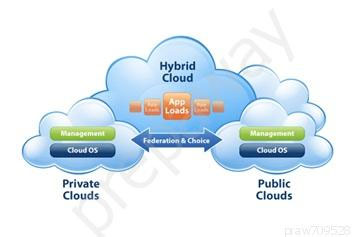Public Cloud Deployment Model
Question
Which of the following cloud deployment model is provisioned for open use by the general public?
Answers
Explanations
Click on the arrows to vote for the correct answer
A. B. C. D.C.
In Public cloud, the cloud infrastructure is provisioned for open use by the general public.
It may be owned, managed, and operated by a business, academic, or government organization, or some combination of them.
It exists on the premises of the cloud provider.
For your exam you should know below information about Cloud Computing deployment models: Private cloud - The cloud infrastructure is provisioned for exclusive use by a single organization comprising multiple consumers (e.g., business units)
It may be owned, managed, and operated by the organization, a third party, or some combination of them, and it may exist on or off premises.
Private Cloud -

Community Cloud - The cloud infrastructure is provisioned for exclusive use by a specific community of consumers from organizations that have shared concerns (e.g., mission, security requirements, policy, and compliance considerations)
It may be owned, managed, and operated by one or more of the organizations in the community, a third party, or some combination of them, and it may exist on or off premises.
Community Cloud -

Public Cloud - The cloud infrastructure is provisioned for open use by the general public.
It may be owned, managed, and operated by a business, academic, or government organization, or some combination of them.
It exists on the premises of the cloud provider.
Public Cloud -

Hybrid cloud - The cloud infrastructure is a composition of two or more distinct cloud infrastructures (private, community, or public) that remain unique entities, but are bound together by standardized or proprietary technology that enables data and application portability (e.g., cloud bursting for load balancing between clouds) hybrid cloud.

The following answers are incorrect: Private cloud - The cloud infrastructure is provisioned for exclusive use by a single organization comprising multiple consumers (e.g., business units)
It may be owned, managed, and operated by the organization, a third party, or some combination of them, and it may exist on or off premises.
Community cloud - The cloud infrastructure is provisioned for exclusive use by a specific community of consumers from organizations that have shared concerns (e.g., mission, security requirements, policy, and compliance considerations)
It may be owned, managed, and operated by one or more of the organizations in the community, a third party, or some combination of them, and it may exist on or off premises.
Hybrid cloud - The cloud infrastructure is a composition of two or more distinct cloud infrastructures (private, community, or public) that remain unique entities, but are bound together by standardized or proprietary technology that enables data and application portability (e.g., cloud bursting for load balancing between clouds) Reference: CISA review manual 2014 page number 102 Official ISC2 guide to CISSP 3rd edition Page number 689 and 690
The cloud computing deployment models define how cloud services are provisioned and managed. There are four main deployment models: Private Cloud, Community Cloud, Public Cloud, and Hybrid Cloud.
A private cloud is a cloud deployment model that is exclusively used by a single organization. It is hosted on-premises or in a third-party data center and is not accessible to the public.
A community cloud is a cloud deployment model that is shared by several organizations with similar interests and requirements. It is managed by a third-party or a consortium of organizations and is accessible only by the members of the community.
A public cloud is a cloud deployment model that is provisioned for open use by the general public. It is hosted and managed by a third-party cloud service provider, and the infrastructure and services are shared among multiple organizations and individuals. Public cloud services are usually accessed over the internet and can be easily scaled up or down as per the users' needs.
A hybrid cloud is a cloud deployment model that combines two or more cloud deployment models, usually a combination of private and public cloud. This model allows organizations to leverage the benefits of both private and public cloud while maintaining control over critical data and applications.
Therefore, the correct answer to the given question is option C, Public Cloud, as it is the cloud deployment model that is provisioned for open use by the general public.